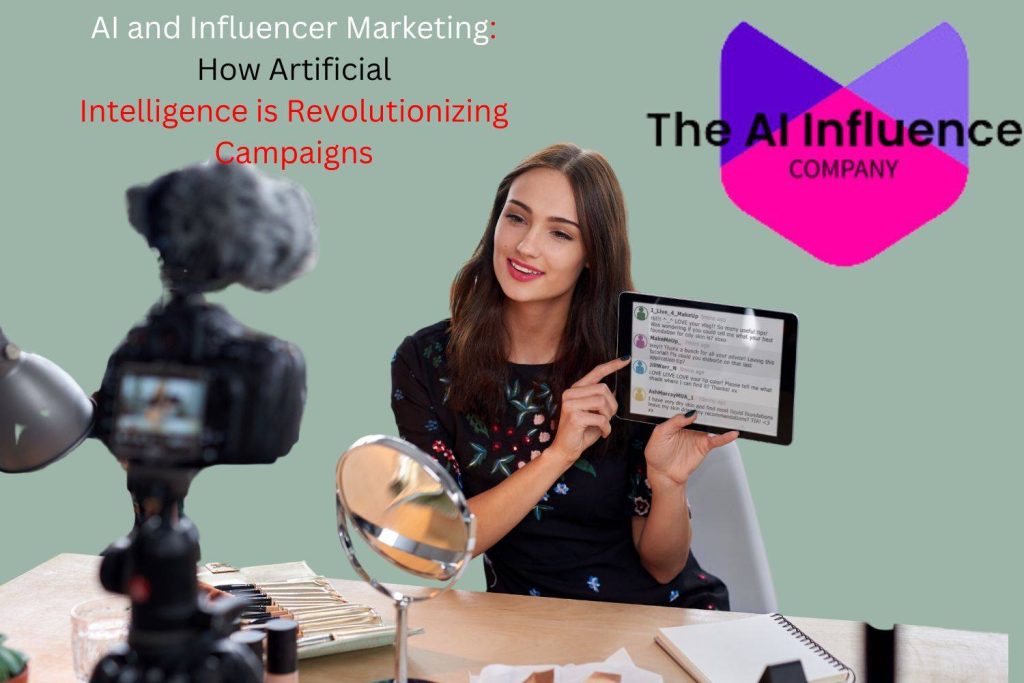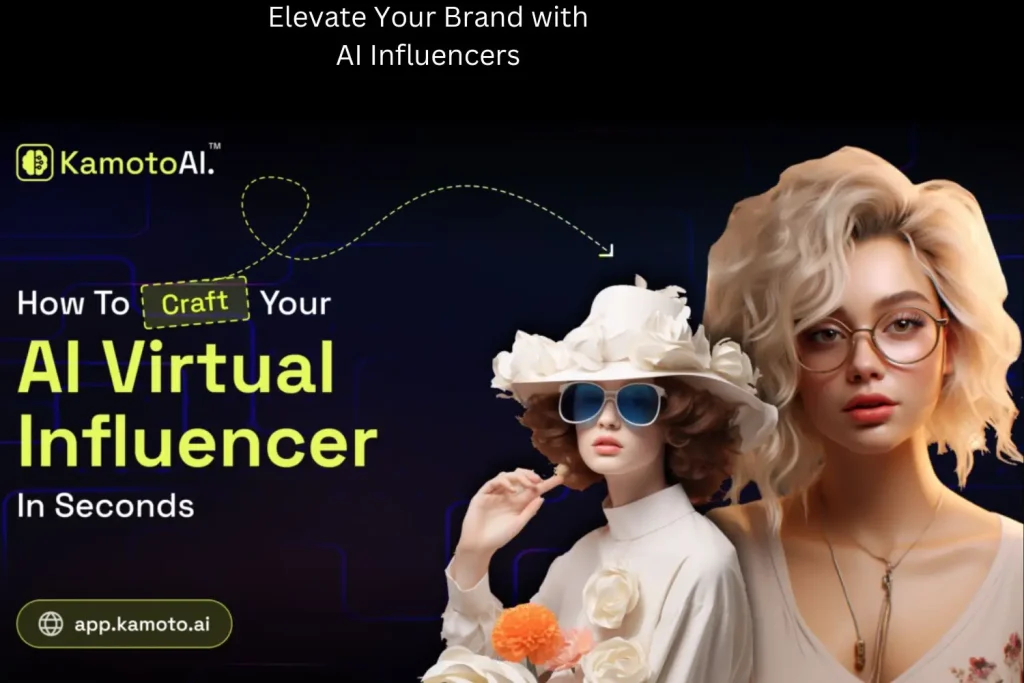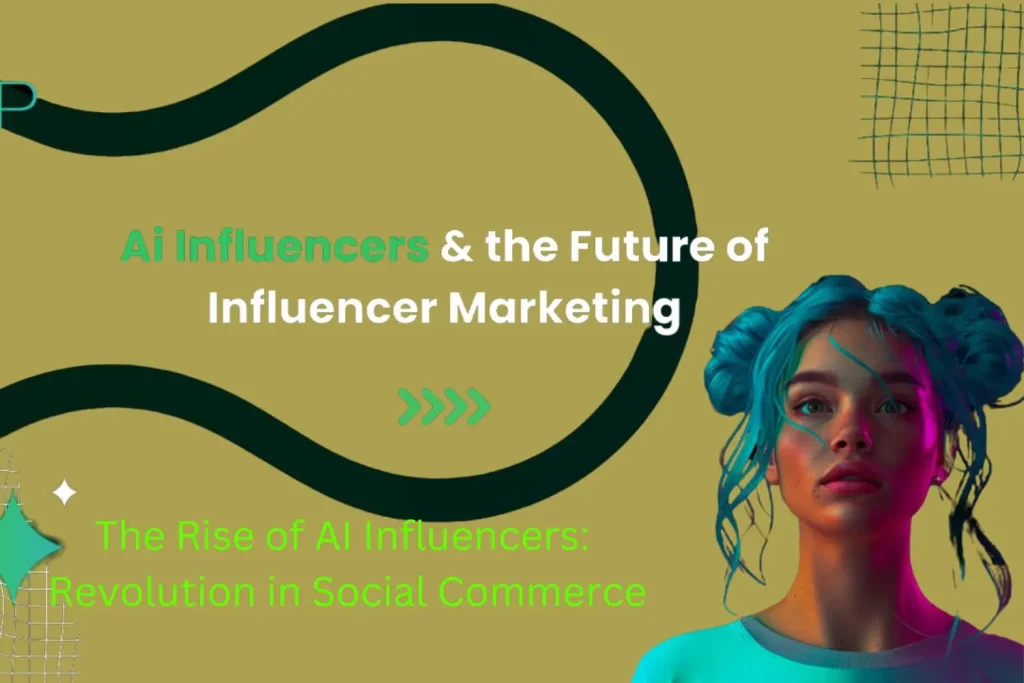An AI influencer: what is it?
An individual with a created and driven digital personality based on artificial intelligence to promote products through posts and stories, mostly on social media, is defined as an artificial intelligence influencer. Unlike human influencers, AI influencers are fully digital and often built from the ground up with features, personalities, and interests that are specifically targeted towards certain audiences or brands.
It allows users to directly communicate with followers, develop content, including but not limited to posts, videos, and livestreams, and advertise products and services. Thus, these artificial AI personalities may, over time, based on user analytics, build, adapt, and improve on using machine learning & NLP to shape consumer behaviour & trends.

How do AI influencers work?
AI influencers use innovative technology like computer vision and machine learning along with natural language processing to create virtual models that can interact with the consumer. Most of the time, these influencers are designed with specific traits, hobbies, and behaviors for specific target markets. It shows that the AI can create relevant posts, subtitles, and videos because it has been fed with a vast amount of data, such as social media activities, trends, and content consumption.
As the responses and the content are changed with time in a bid to meet the expectations of the users, the AI influencer is able to accumulate knowledge from its users. It can make videos, sponsored ads, and selfies that look as genuine as an actual human being. Marketing cooperation with the AI influencers is another activity that involves the use of products and services and active communication with audiences, but in a realistic manner and without being constantly online.
Who are the current and most popular AI influencers?
AI influencers such as **Lil Miquela**, aged 19, and a dressed influencer who boasts more than 3 million followers on Instagram. Lil Miquela, an ‘influencer’ created by the firm Brud, shares updates on activism, music, and fashion. **Shudu Braco** is another popular AI influencer who has the honor of being the first digital supermodel in history. Fenty Beauty has teamed up with some of the most glamorous supporting businesses, like Fenty Beauty.
Brud also created **Bermuda, an account that caused discussions concerning the extent to which artificial intelligence can manipulate people on social networking sites. Another famous AI beautification representative is **Noonoouri** Girl, who has a considerable number of followers on Instagram and presents herself as a very energetic and attractive lady. She offers clothes and makeup products and services there. Influencer culture has evolved into this with the help of such AI characters that AI provides companies with a technological approach to audience.

What impact do AI influencers make in the world of influencer marketing?
Thus they are transforming the influencer marketing dominating landscape due to what AI influencers provide marketers—greater control, consistency, and scalability. AI influencers may be producing their posts at any one time, and they can also be conversing with the different audiences at any one time since they are not bound by time, place, or partiality like humans are. Perhaps they can simply be trained to never run the risk of controversy or a mistake to ensure that they always pump out messages and play perfectly into the organization’s values.
Other personas reveal that AI influences can also analyze massive amounts of information in order to assess the adequacy of content with the general public to enhance viewership and conversion. AI influencers are particularly attractive to many organisations seeking low-risk, high ROI marketing strategies because of their ability to constantly post and appropriately target given the lower costs associated with their implementation compared with human influencers.
Is the use of AI by influencers moral?
AI implemented by influencers raises issues of moral regard, at the top of them being manipulation, truthfulness, and openness. On the one hand, the marketers may turn to the AI influencers as such to be used as a tool for creativity appealing to consumers when the marketers don’t have to worry about human behavior being too unpredictable. The following is an issue because followers may not know they are interacting with AI: transparency is an issue, though, since followers may not know that they are using AI.
In addition, AI influencers can spread consumers unrealistic beauty standards this publication keeps idealised representations without thinking about the consequences of its use. Despite the many revolutionary opportunities mastered in marketing utilising AI influencers, it remains vital for organisations to keep themselves open, avoid deception and be sensitive to the ethical impacts of influencing consumer behaviour through this AI. Pervasive integrity and innovation are two extremes that must be struck.

Can an AI influencer feel? Or do they possess one’s personal opinion?
Of course, AI influencers cannot have feelings or opinions about this matter on their own. These algorithms are data- and machine-learning-based algorithms designed to emulate humans and generate content based on inputs from the users, patterns, and trends. While AI seems to mimic ideas or emotions through connection in material, these are fake emotions that have been created to excite people.
They are not influenced by feelings and experiences of theirs; instead, AI influencers have constructed and controlled avatars. Thus, these are AI influencers who are not capable of consciousness or possessing opinion or what a’real’ person would think, as they function merely on algorithms rather than any realistic emotions.
What will the future AI influencer look like?
Still more and more natural, complex-looking avatars with higher levels of realism and emotional intelligence and a higher degree of responsiveness to their audience are probably on the horizon for fake influencers. These features will help them understand and address the human emotions better, hence building close and tailored interactions with the followers. These specific types of AI influencers can build into almost-live VR/AR avatars in the near future that can communicate in real time.
AI will also make content generation more flexible so that influencers can resolve the necessities, reaction, and trend of the audience promptly. How these influencers are integrated into the marketing industry will continue to be informed by ethical issues such as authenticity.

Table of Contents